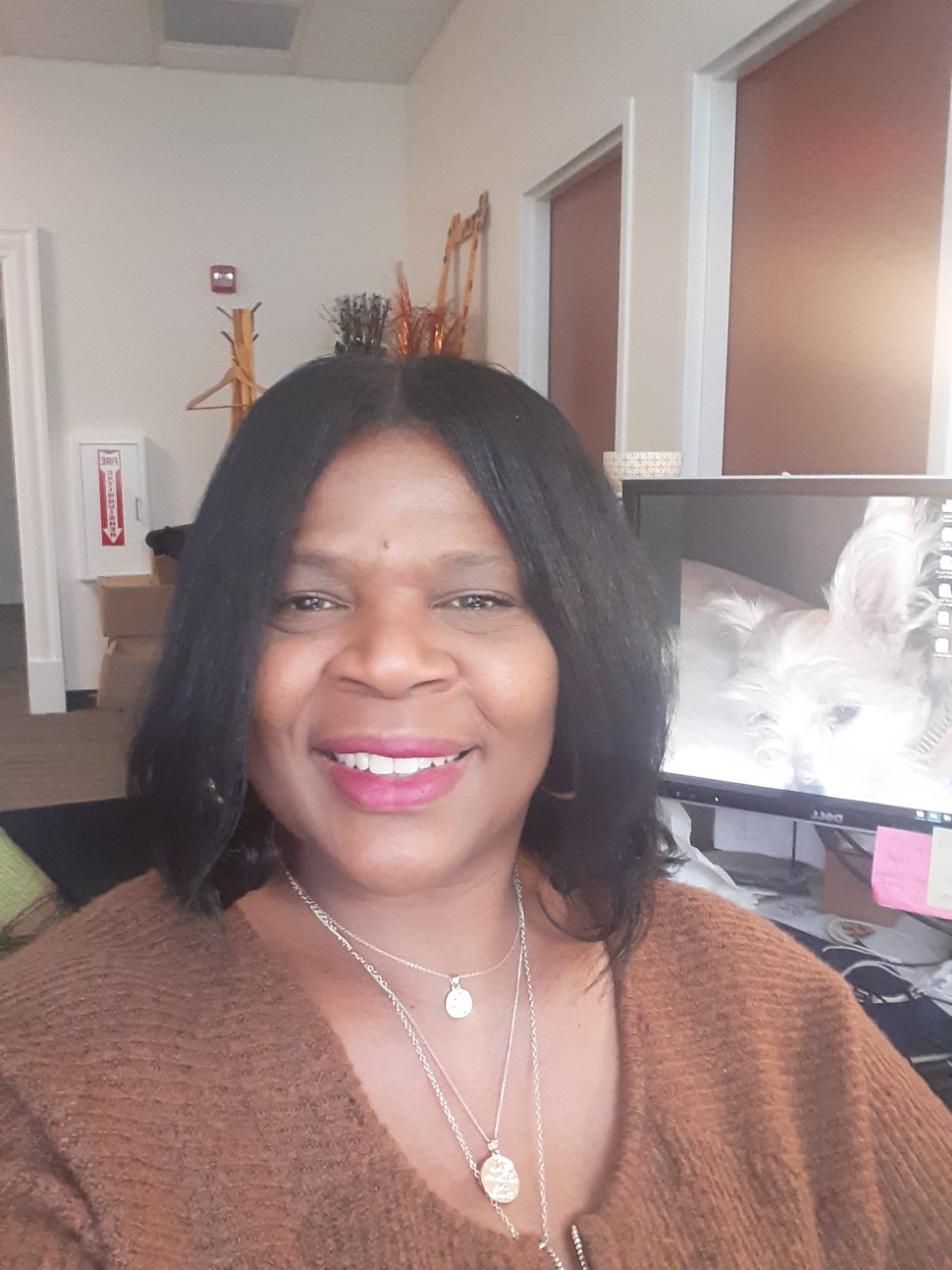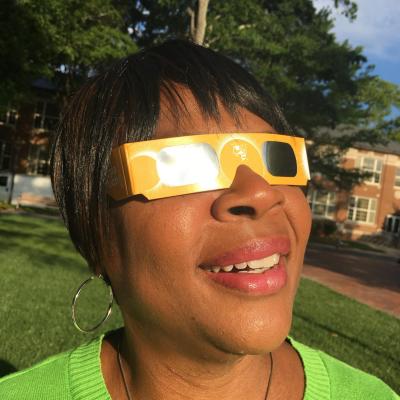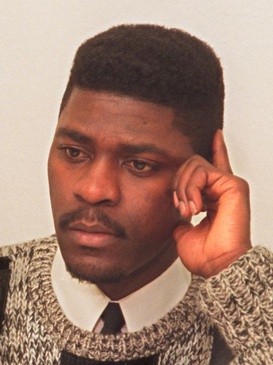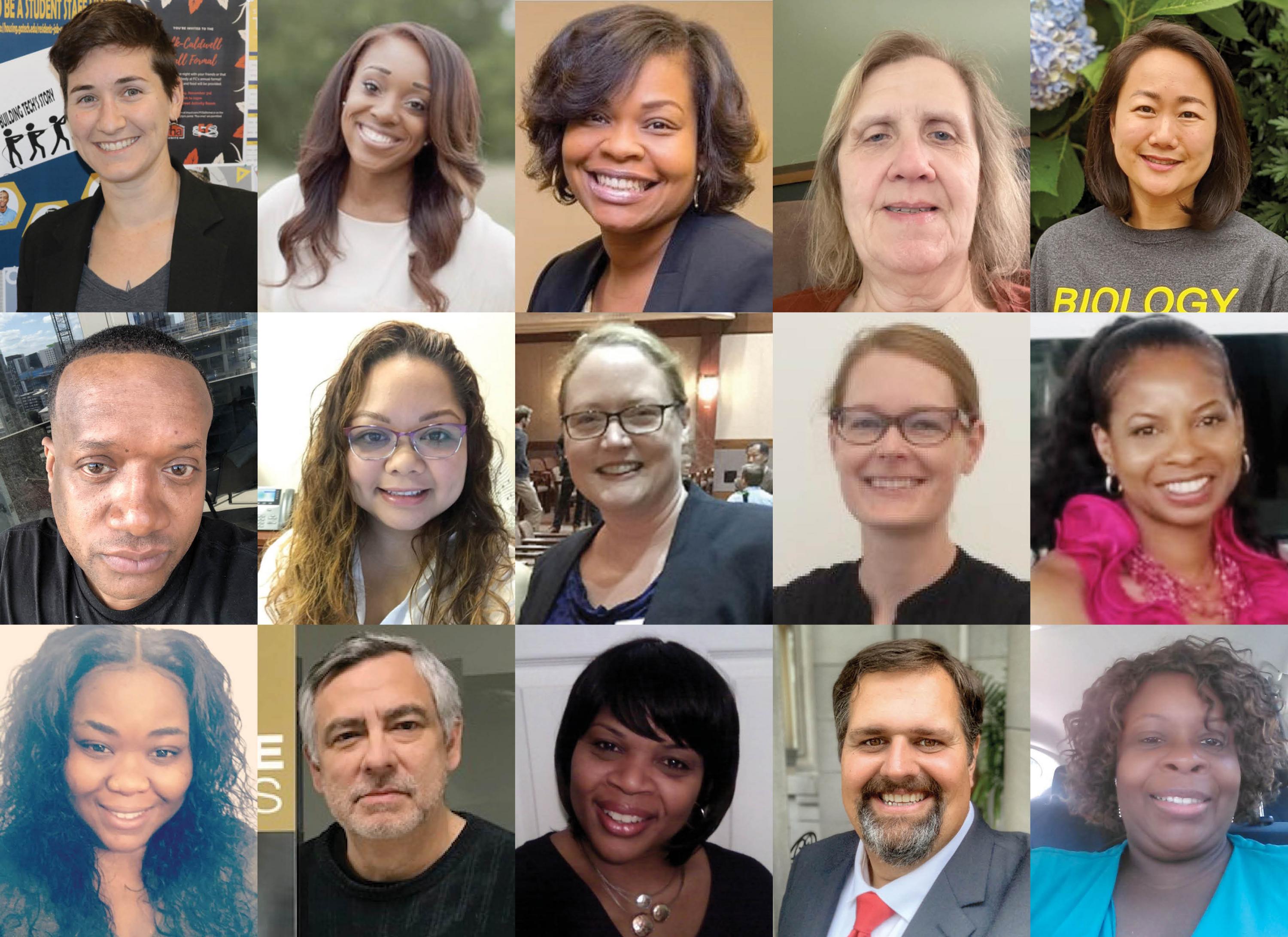Growing up in a tight-knit neighborhood in Syracuse, New York, Kathy Sims learned the importance of community early in life. Now, as a development assistant in the College of Sciences with over 25 years of experience working at Georgia Tech, she spends her days doing what she loves most – connecting with others to build positive, supportive relationships.
Sims works as the liaison between the Office of Development and the College of Sciences to grow relationships with alumni for philanthropic support. Her goals are to connect alumni with professors to sponsor educational experiences and research, and then connect the results of that funding through an annual faculty awards presentation.
Sims also serves as chair of the College of Sciences Staff Advisory Council and works on the College’s Task Force for Racial Equity to support others and advance diversity, equity, and inclusion.
“I've always been an advocate of, ‘What can we do?’,” says Sims. “‘How can we help this person?’ And through working with the Development Office they are in tune with what's needed for students for the College, and so forth. And that's where the donors play a big part.”
Reflecting on her childhood, Sims shares that she did not predict living and working in Atlanta. However, her background, influenced by words of wisdom from many mentors and unique learning experiences, led her to the city and campus she’s called home for 26 years.
Growing Up and Gaining Unique Experiences
Though Sims’ father had a high school education and her mother left high school in eleventh grade to help her family, Sims credits her parents for stressing the importance of education – and adds that it’s one of the many reasons she has enjoyed working at Georgia Tech. In fact, growing up, her father would tell Sims and her five siblings that “you either have to go to college, or you have to go to work, but you cannot lay around the house.”
“I remember in high school, I wanted to get a job,” remembers Sims. “And he said, ‘Okay, tell me, why do you need a job?’ All my friends had jobs and they had a car. And so I thought I needed one. I said, ‘Because I want to buy stuff.’ He said, ‘What do you want to buy?’ I said, ‘Just stuff.’ He said, ‘What do you need that you don't have?’ And I said, ‘I don't know.’ I couldn't think of anything that I really needed. He said, ‘How about you concentrate on school? And I'll concentrate on getting you what you need.’”
Sims adds that another early influence in her was her sixth-grade teacher, Evelyn Williams, who noticed Sims’ love for writing and encouraged her to pick up a pen.
“We had to write a story about our roots. And I said, ‘Well, I don't think I really have anything important to share.’ And Mrs. Williams said, ‘You always have something important to share.’ And so she came back and asked if she could publish what I had written. And I became a published author at eleven years old.”
Sims continues to love writing and shares that one of her lifetime goals is write a children’s book, and that she has a lot of material. She adds that Williams first taught her older brother, and then her nephew, and notes the teacher as someone who continues to inspire her about the value and fulfillment of working in education.
After graduating high school, Sims decided to attend the University of Buffalo to study sociology and public administration. Prior to attending college, Sims shares that her bubbly personality and being protected by her “star athlete, handsome, straight A student” older brother shielded her from directly experiencing racism. However, in her freshman year, she was shocked to hear a hallmate call her roommate, a Black woman, a highly offensive slur.
Sims sees that incident as her first experience witnessing and fully understanding the harm of racism. Reflecting on her childhood and the experiences of family members and friends, she adds that she realizes she was not immune to the effects of racism.
Specifically, she recalls the struggles that her parents had to overcome because of their race. While pregnant with her, Sims' Mom and Dad went to the local hospital in Canton, Mississippi because she was in labor. During that time, discriminatory policy prevented her mom from entering the hospital from the front door.
“When I was a baby, I was of lighter skin,” shares Sims. “The nurses would come and get me, and my mom would go looking for me, and in the maternity ward, she couldn't find me because they would have me at the nurse's station, and they would be kissing all over me and hugging me. And she thought, ‘How ironic is that? I can't go into the front door of the hospital because of what I represent but you can kiss and love all over what represents me.'”
Speaking for the Underdog
Sims also remembers that it was the death of Jonny Gammage, a childhood friend of hers who was killed by police decades ago in a brutal tragedy, that motivated her to attend the University of Buffalo, even though she was accepted to several historically black colleges and universities.
“Jonny was always a kind, gentle spirit, always fighting for the underdog and I know if he was here with us, he would be marching and protesting and advocating for all of those who feel they don’t have a voice, and I would be right there beside him,” she says.
In fact, Sims says that her desire to speak up for the underdog was one of her primary motivators for joining the new College of Sciences Staff Advisory Council as chair, a role she formally began this year, after being nominated last fall semester.
“I’m so honored, humbled and passionate to serve in the role as chair of the Staff Advisory Council. I want to be able to speak for those who feel they aren’t being heard and to inform, encourage, support, promote and provide information and opportunity for those who may not be aware of their options.”
With her work on both the College of Sciences Staff Advisory Council and Task Force for Racial Equity, Sims jokes, “I wear many hats.”
On the Staff Advisory Council, Sims manages a team that serves as a liaison between the College staff and leadership, providing an avenue for significant contribution of staff expertise, with the goal to use perspectives to provide concrete recommendations and inform leadership decisions.
“We are still relatively new in our roles, but I’m so excited and encouraged to be able to work with a group of people from diverse cultures, background and experiences, who share the same passion and are working toward the same goals as a team,” says Sims. “We know we have a lot of work to do, but with the support of CoS leadership, school chairs, and fellow staff members, we are excited to explore what opportunities await us.
On the Task Force for Racial Equity, Sims works to address two key questions: first, how do we build a College of Sciences community that is just, fair, and equitable for all members of our community; second, how do we attract and retain Black faculty, students, and staff to our community?
Across both committees, Sims provides a wealth of knowledge accumulated from her many years of experience at Tech.
Since joining Georgia Tech in 1995 in the Professional Education Department, Sims has worked in total of four different departments, including the Alternative Media Access Center (AMAC) and the Scheller College of Business. In fact, she was a part of the first cohort of employees to occupy the new Scheller Building in Tech Square.
“It used to be just trees,” remembers Sims. “And so we were able to watch it being built and get in from the beginning. And it was very, very exciting. One story we always share is once we got into building, the first couple of weeks, we would always complain that our legs and our knees hurt. We didn't realize it was because the building was so big we were walking back and forth.”
Sims adds that working in the AMAC, which provided textbook support for people with disabilities, provided her with a unique perspective on the different obstacles that people with disabilities can face every day.
“What that job taught me is to just not take anything for granted,” she says. “One of my co-workers was paraplegic, and I had gotten in a car accident. And so I was sore. But he was paralyzed from the neck down. And when I would come back to work he would always ask, 'How are you feeling?' And I'm looking at him, I'm thinking, 'Wow, you're asking how I'm feeling?' And he has so many more challenges than me.”
Over her years at the Institute, she notes that she has first-hand witnessed the emphasis placed on diversity, equity, and inclusion grow significantly to welcome people of all backgrounds. Throughout her career, though she has also faced instances where she was mistreated, she has used advice from her parents to deal with those difficult situations.
“I think what my mom left me was such an interesting perspective in life,” says Sims. “And I remember having a conversation with her one day, and I was telling her that someone had been said some unkind things to me, and about me and someone told me, and she could see that it was bothering me. And she said, ‘Okay, well, they talked about Jesus. So what makes you so important?’ She put it in perspective, when she said that, because there will always be people there who may not agree with you. And it's okay to disagree.”
Sims adds that her father also encouraged her to prioritize things she was passionate about, and not let minor disagreements inhibit her life, but instead to approach difficult situations with kindness and compassion.
“He said, ‘You're not going to win every argument, not everyone is going to like you. But when you're being true to yourself, and you're passionate about what you know is right, then fight for that.’ And that sticks with me. So even in those situations where I was mistreated, I didn't hold grudges. I didn't try and get that person back. I had to realize that you have to pick and choose your battles, and you can't make everyone like you, but what they can't say is that I was ever cruel to them.”
Racial Equity and Opportunity
Thinking on Black History Month, Sims says she feels inspired by the call to increase opportunities for Black individuals in all fields.
“We're at a stage now where if you don't give us the opportunity to sit at your table, we'll just build our own table, and then we'll invite you to our table,” she says. “And in that, in the opportunity to invite you to our table, it also gives us the opportunity to share, and grow, and learn so many different things about each other.”
While reading about the recent death of Hank Aaron, Sims also felt inspired by the contributions he made as a sports icon, civil rights advocate, and humanitarian. She sees Black History Month as an opportunity to celebrate the accomplishments and contributions of Black people, like Aaron, to society.
“People of color have made a huge contribution to the world, not just in the United States,” she says. “Eventually, I think hopefully we'll stop hearing, ‘this is the first person to do this, the first person to do that.’ Why, in 2021, are we still having the ‘first African American' to do something? At some point, we'll stop being first, it'll just be because you are the best person for that job.”
Sims adds that the call to advance racial equity should not be confined to the month-long parameter of Black History Month. Throughout the year, she adds that she tries to learn more about various cultures in order to celebrate them.
For example, growing up she took African dance classes, where she gained a unique perspective on the history and culture of several ethnic groups.
She praises “William Bellinger, my African dance teacher, who encouraged me to express myself through dance and spoken word, and encouraged me to be brave, take chances, see the world, and to embrace our African culture and all that it has to offer.”
Sims also regularly volunteers through her church, and in her personal time tries to leave a positive impact on the world in little ways, such as handing out water bottles to people without homes during the summer.
“Black history is so much more than a month. It’s a movement, a lifetime, and most importantly, a lifestyle,” says Sims. “A lifestyle influenced by the countless contributions made by Black people, who, through all of the adversity, racism, and mistreatment they endured, they still continued to give back. Overcoming adversity is in our DNA. This is why, giving up on myself or mankind has never been an option.”
For More Information Contact
Grace Pietkiewicz
Communications Assistant
gracepz@gatech.edu






